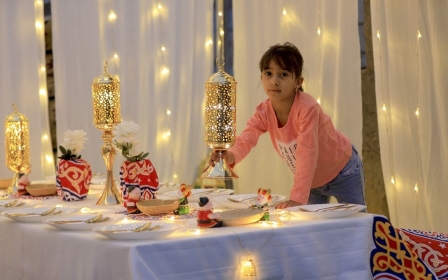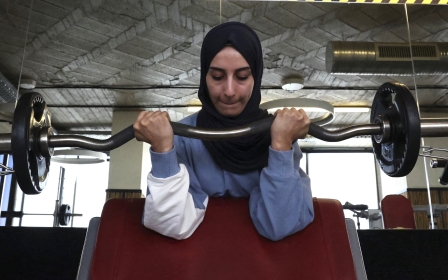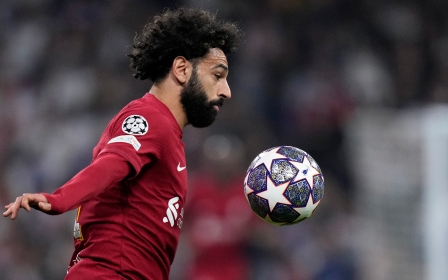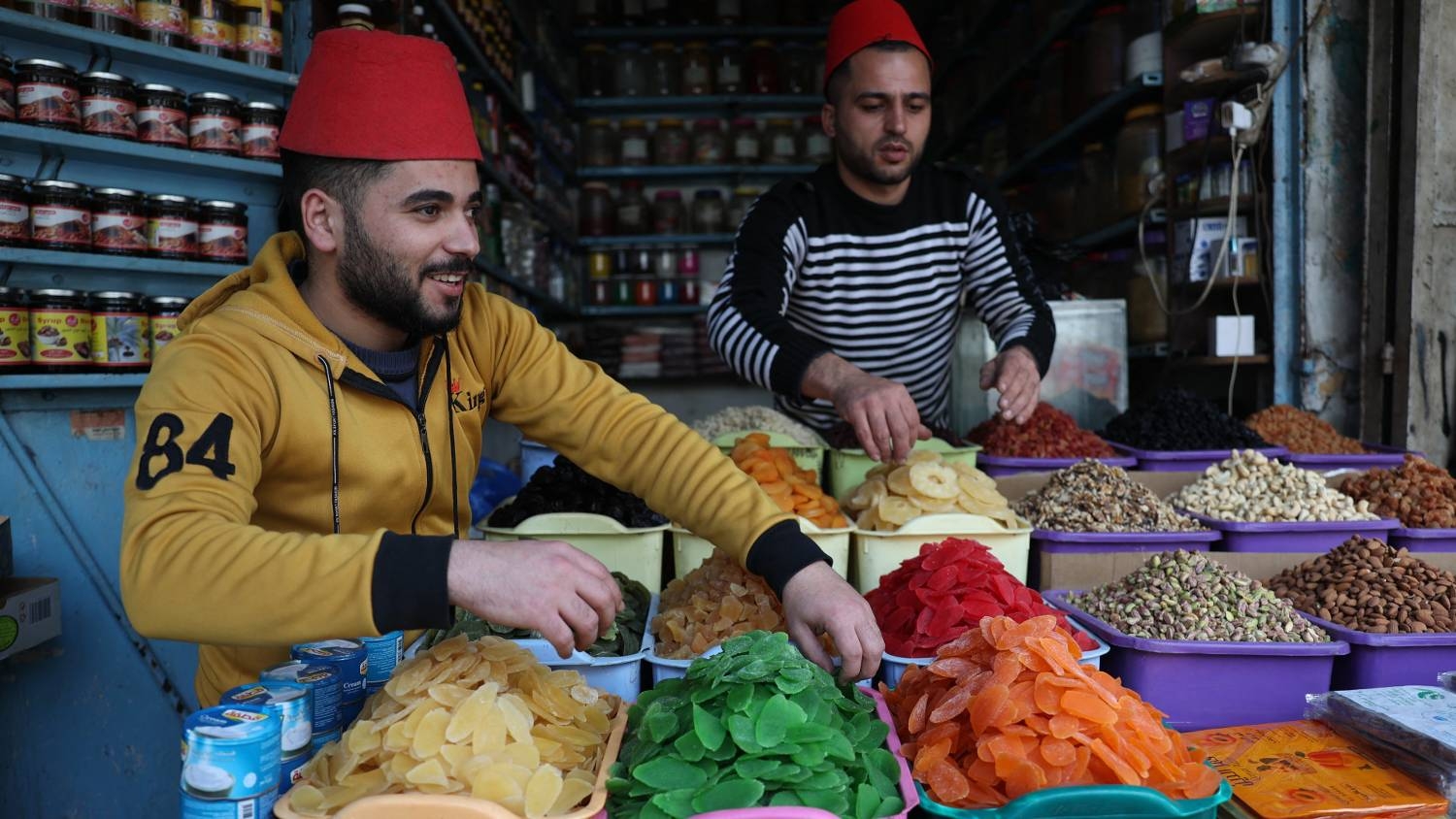
Ramadan 2023: Muslims across the world welcome the holy month
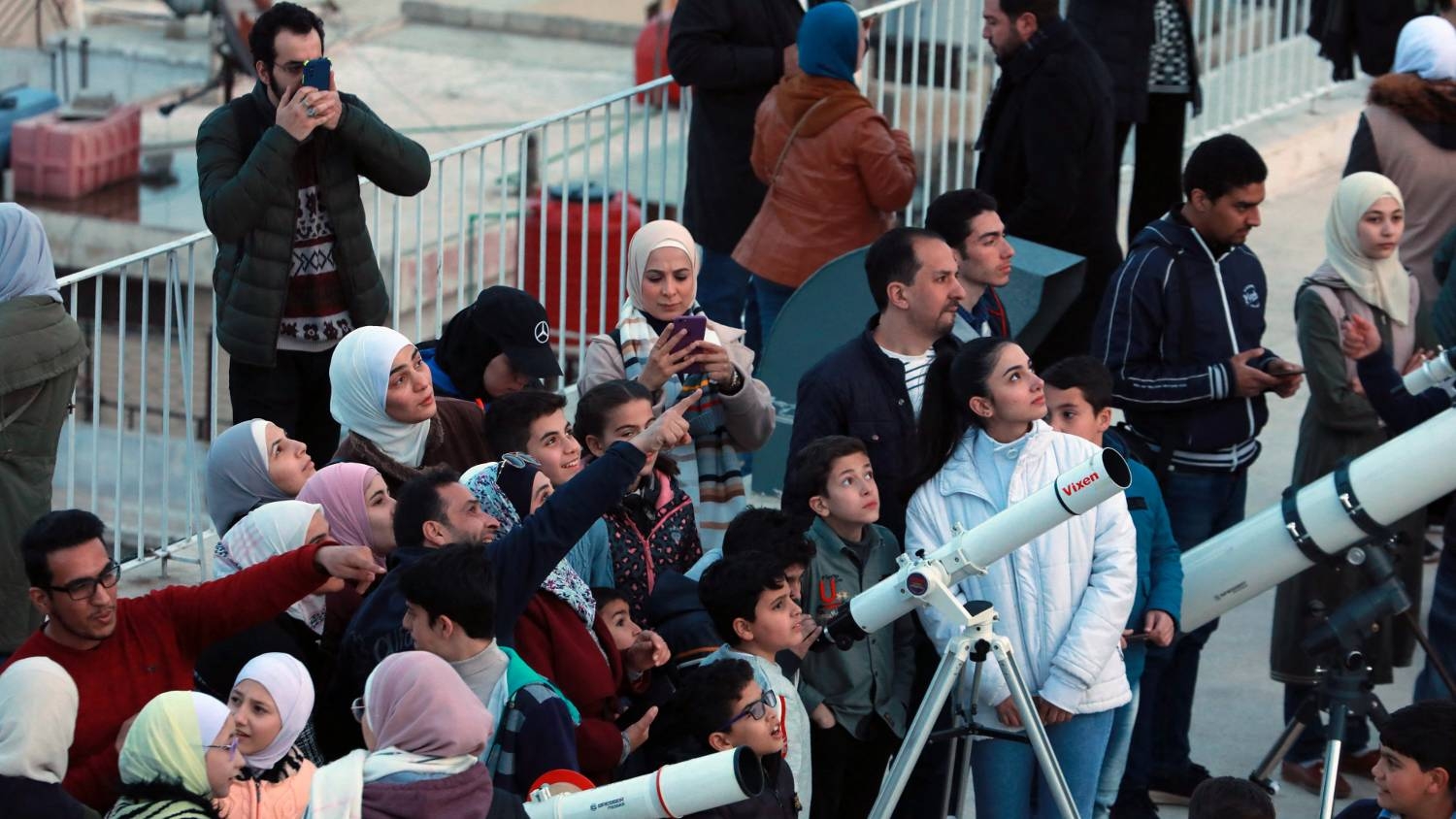
Muslims from around the world have welcomed the holiest month of the Islamic calendar after sighting the new moon. For the devout, the month of Ramadan means abstaining from food and drink during daylight hours and spending more time in prayer and meditating on God. The month is holy simply because it is ordained as such in the Quran, but Muslims also believe that the Prophet Muhammad received the first revelations from God at this time. During the last nights of Shaban, the month that precedes Ramadan, moon watchers try to spot the crescent moon, like here in Damascus, Syria. In the top image, Palestinian vendors sell dried fruits and other sweets to be eaten at iftar in Gaza (Both images AFP, top by Said Khatib, lead by Louai Beshara)
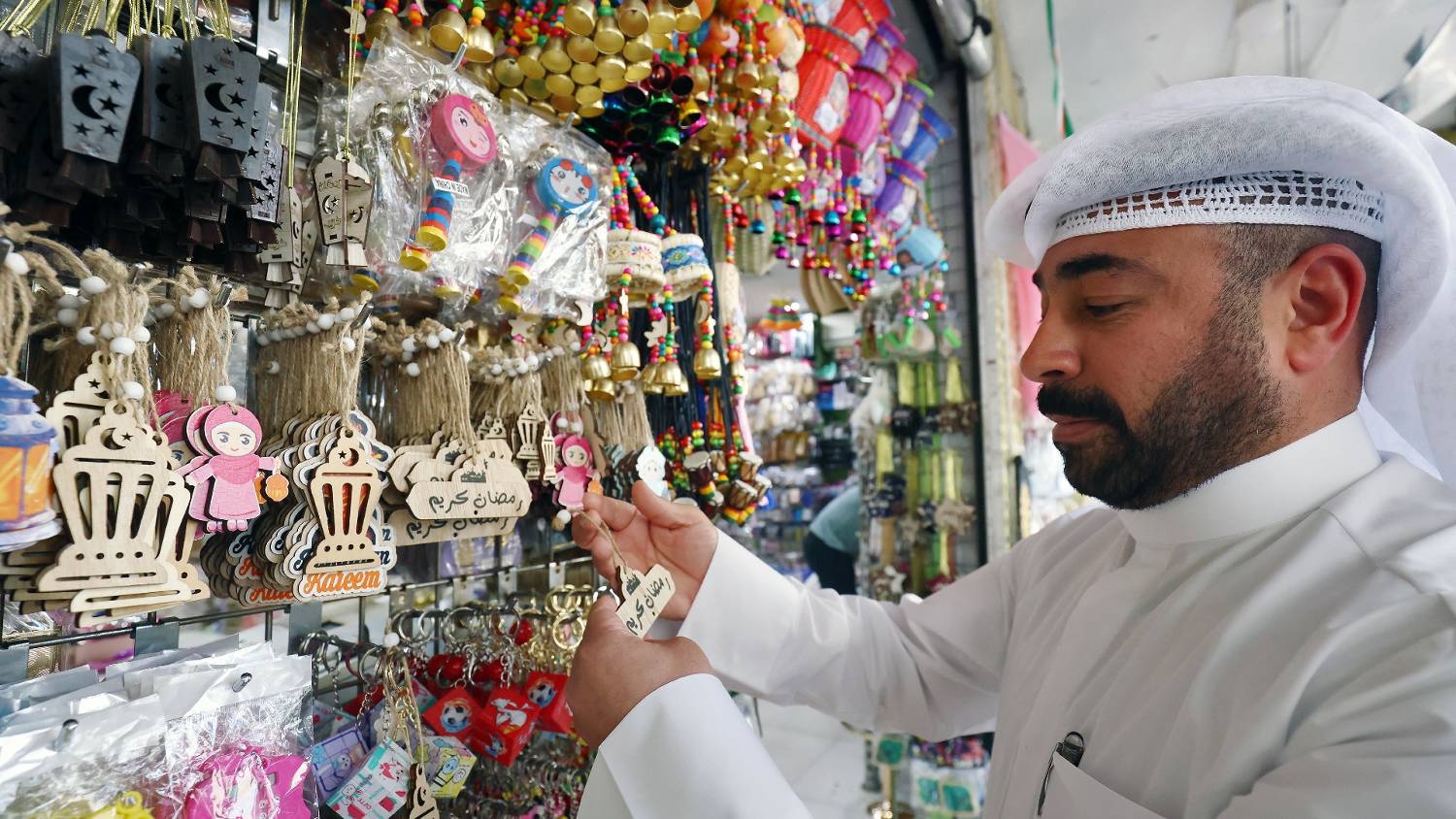
Other preparations for the month include decorating the home with colourful lights and hanging lanterns, as demonstrated by this shopper in Kuwait City. While the observance of Ramadan is largely spiritual, there is also a festive element to the occasion with children getting involved in fasting even though they are not required to, and even helping set up decorations (AFP/Yasser Al-Zayyat)
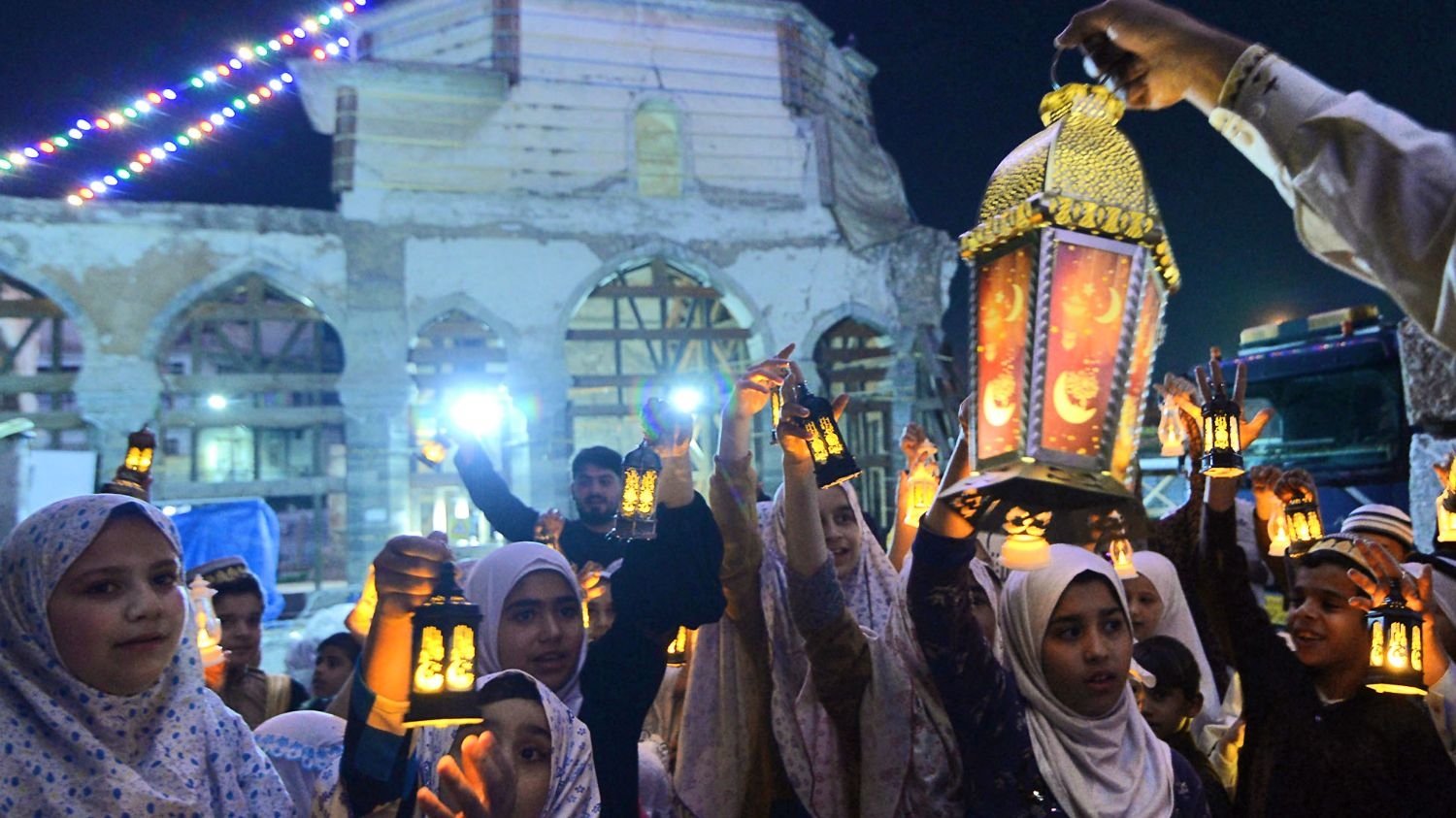
The Ramadan lantern tradition, also known as fanous, is thought to have started in Egypt, during the Fatimid era. One legend says that in the 10th century, the Fatimid Caliph Al-Muizz li-Din Allah travelled from Morocco to Cairo, arriving during Ramadan. He was greeted by well-wishers carrying ornate lanterns, decorated in a multitude of colours. The tradition is now celebrated in other parts of the Middle East. Here in Mosul, Iraq, children carry their Ramadan lanterns outside the Al-Nuri Mosque on the eve of Ramadan (AFP/Zaid Al-Obeidi)
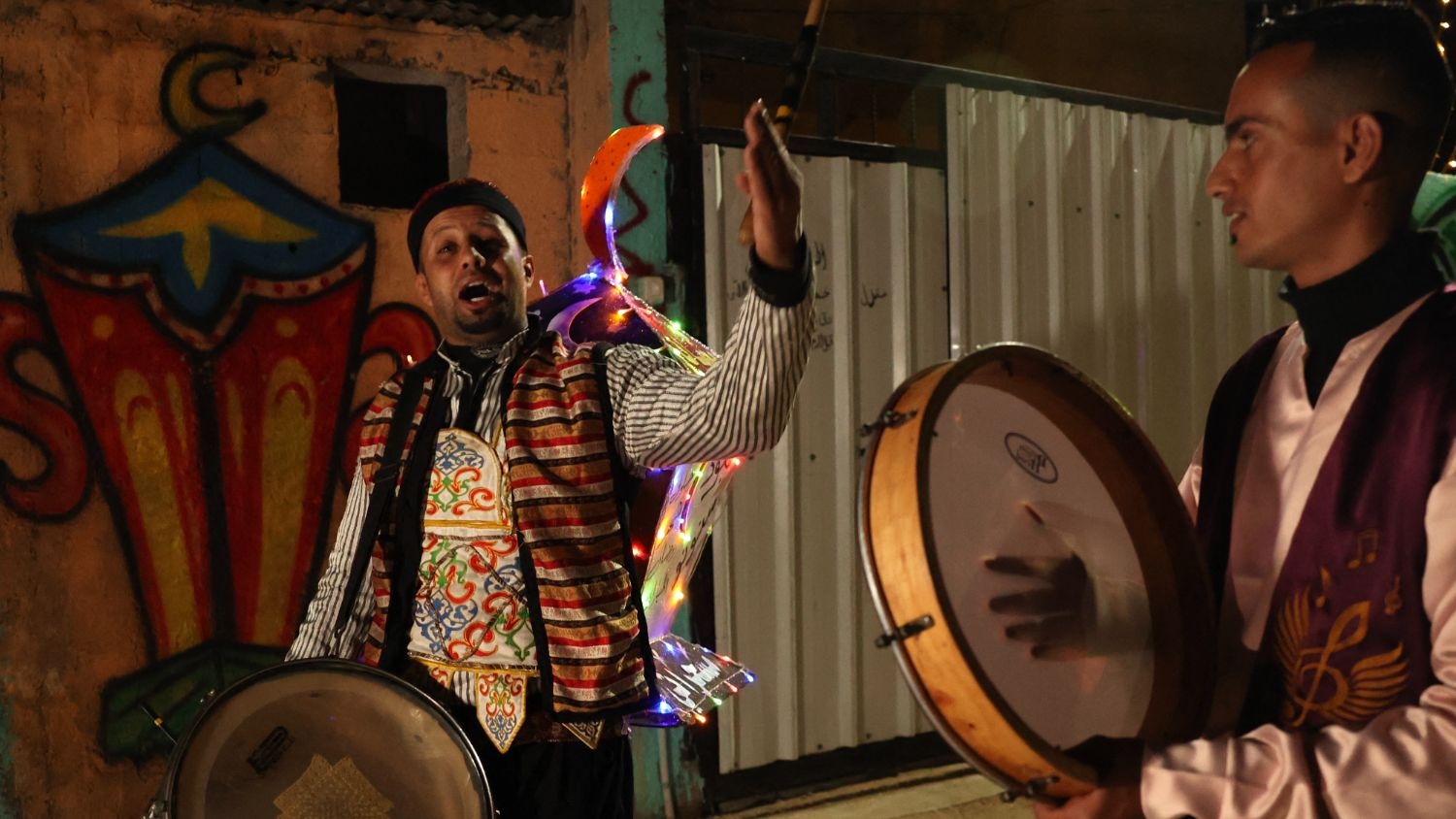
Another Ramadan tradition is here kept alive on the streets of Rafah, in Palestine's Gaza Strip, as musaharatis bang their drums to tell the faithful that dawn is about to break and that they should eat before the sun rises. This tradition is common across the Middle East (AFP/Said Khatib)
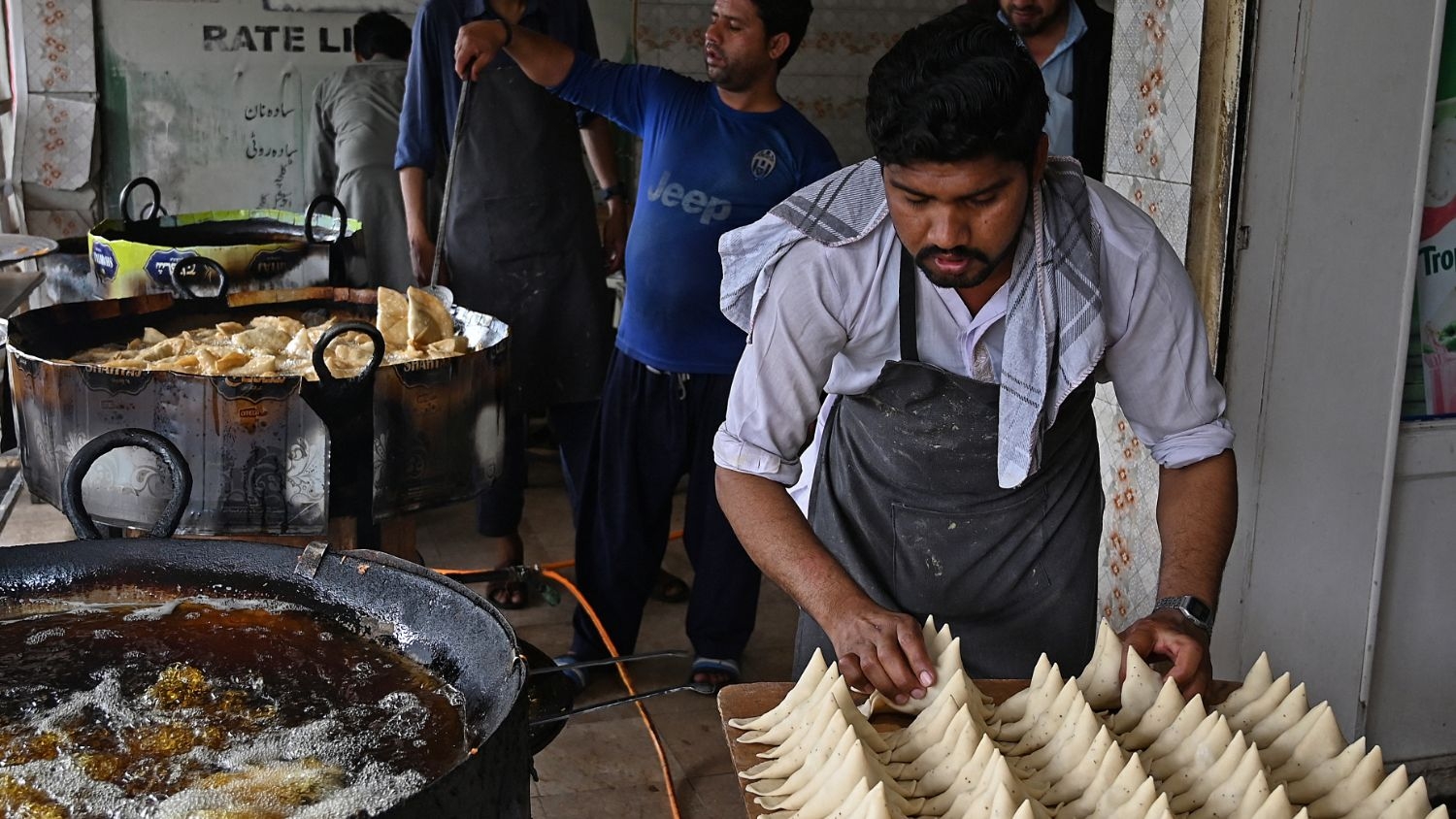
There are approximately two billion Muslims in the world and how they break their fast is usually dependent on their cultural traditions. The Prophet recommended eating dates and drinking water before moving on to a bigger meal, and while many across the Muslim world do start their meal this way, they often enjoy traditional, regional foods afterward. Here in Pakistan, a popular fried meat-filled delicacy called samosa is prepared (AFP/Aamir Qureishi)
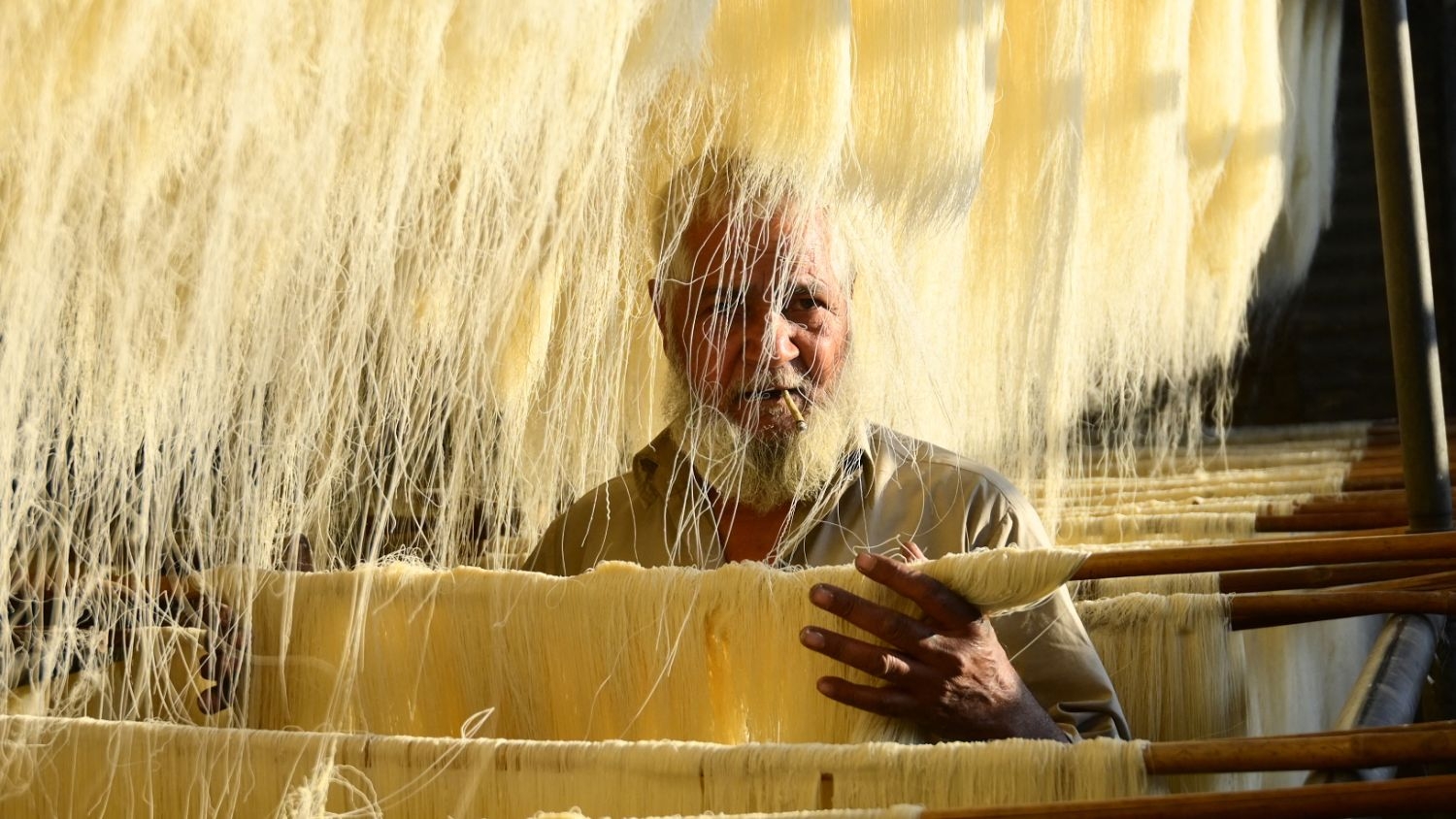
In the mornings, before the sun rises, Muslims wake up for suhoor. This is an early morning meal eaten before morning prayers and can vary from a bowl of cereal to a few sips of water. Here in Prayagraj, in the southern Indian state of Uttar Pradesh, a vermicelli maker dries strands to be used in traditional dishes, including semiyan, which is often eaten with milk at dawn (Sanjay Kanojia/AFP)
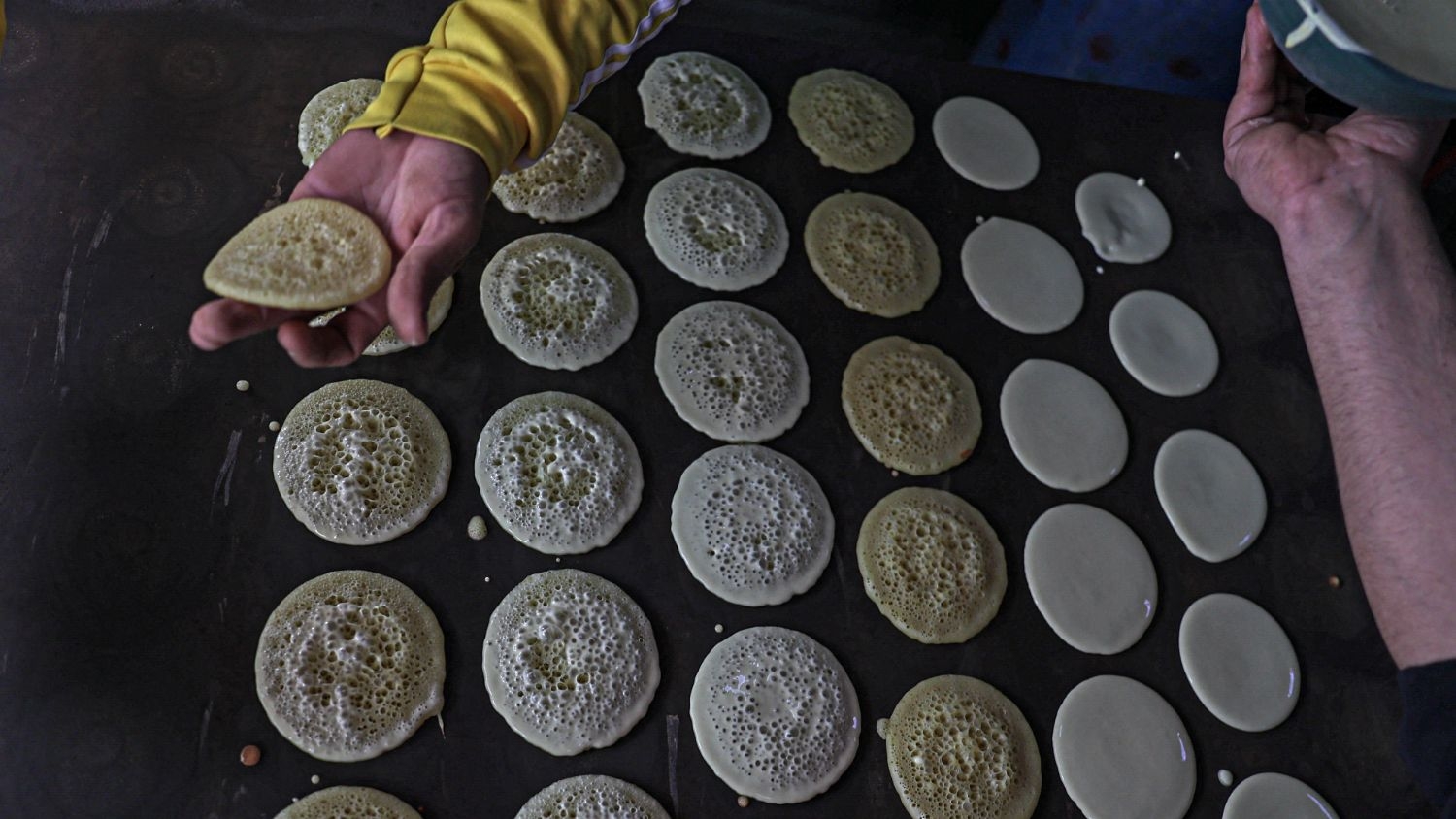
Palestinians say it's not Ramadan until there is qatayef on the table. The sweet treat is made from semolina pancakes that are stuffed with cream, nuts, or dates, and drenched in syrup. It is enjoyed after iftar or savoured after the supplementary tarawih prayers, which are only offered during the holy month (Said Khatib/AFP)
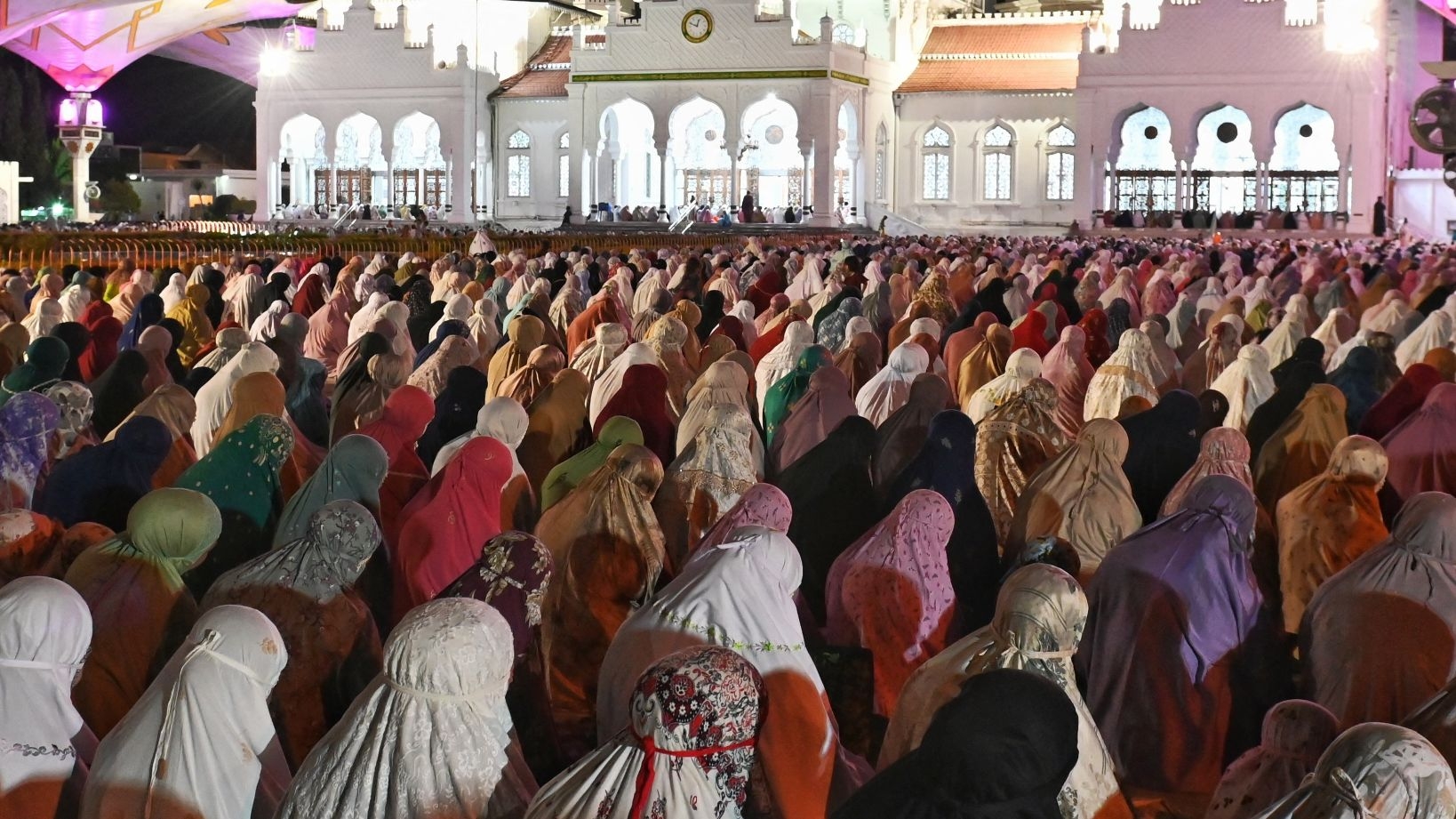
Worshippers fill the Baituraahman Grand Mosque in Banda Aceh, Indonesia. Acts of religious devotion are said to hold more value during Ramadan and worshippers make an extra effort to spend their nights in sincere prayer. As a result, mosques are often much busier (AFP/Chaideer Mahyuddin)
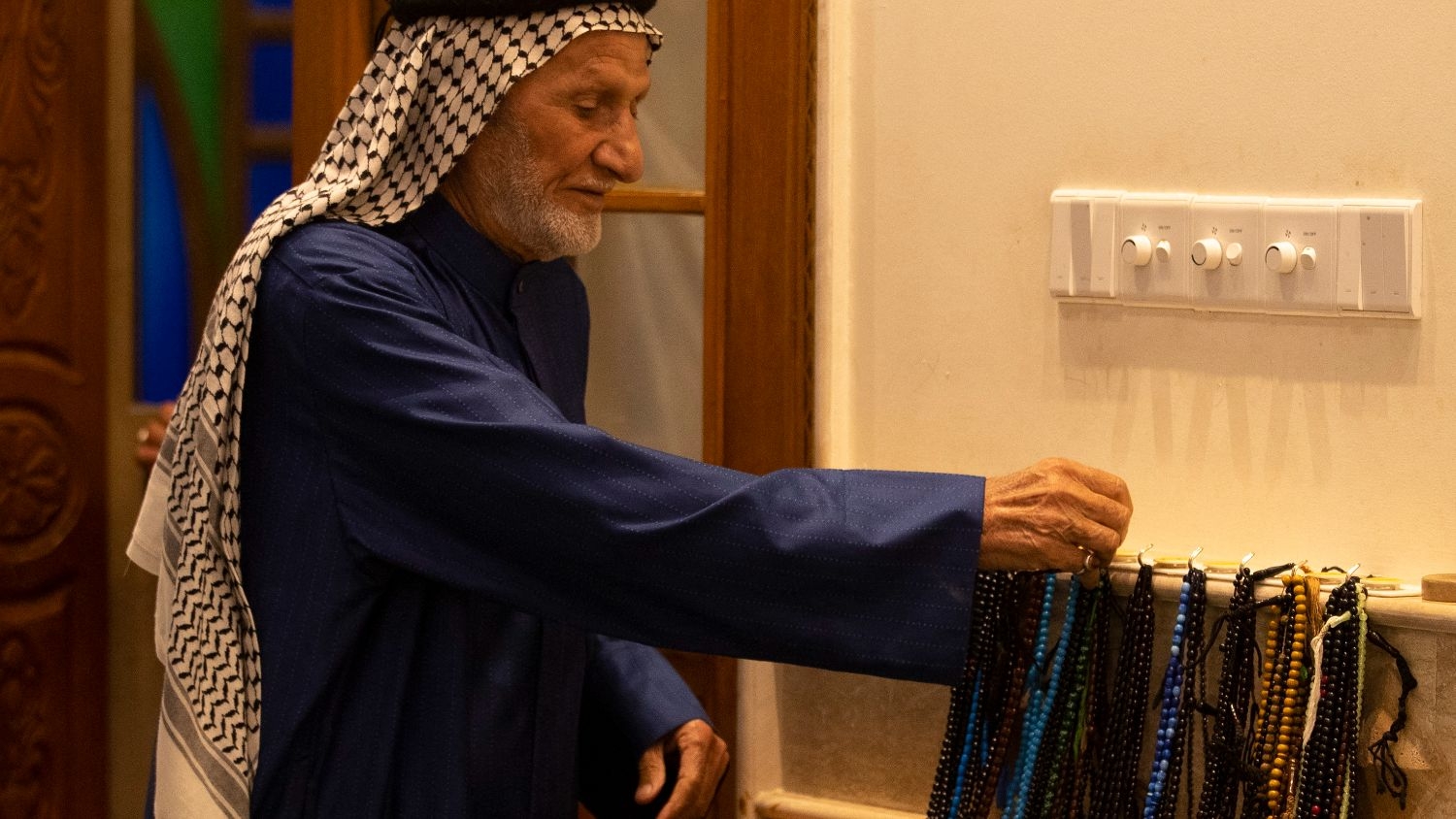
Many Muslims try to complete an entire reading of the Quran during Ramadan. Made up of thirty sections comprised of 114 chapters, called surahs, the holy book is also read out during special tarawih prayers at night. At a mosque in Basra, Iraq, a man picks prayer beads to make dhikr, or "remembrance of God". This common act of devotion involves chanting God's names and praising him (AFP/Hussein Faleh)
Middle East Eye delivers independent and unrivalled coverage and analysis of the Middle East, North Africa and beyond. To learn more about republishing this content and the associated fees, please fill out this form. More about MEE can be found here.


